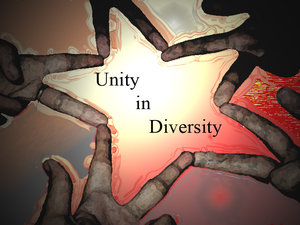Six Marks of a Missional Church
In Acts 2:42-47, we see an inspiring example of a missional church – a loving, Christ-centered church on a mission to be and make growing disciples of Jesus. What can we learn from the early church in ACTS about being missional today?

Devotion
The early church devoted themselves to the apostles' teaching and to the fellowship, to the breaking of bread and to prayer (Acts 2:42).
The Greek word for “devotion” means to give something our steadfast attention, to care for it relentlessly, to wait courageously on something constantly. What were the objects of the early church’s devotion?
They were devoted to learning truth according to what the apostles taught. They learned and lived out the truth wholeheartedly and courageously.
They were devoted to the fellowship. They were committed to each other in an enduring sort of way.
They were committed to remembering Jesus. They broke bread regularly as a way of rallying to Christ, keeping him at the forefront of their lives.
They engaged in extraordinary prayer.
Awe
In the early church, “Everyone was filled with awe, and many wonders and miraculous signs were done by the apostles” (Acts 2:43).
The people were amazed at what God was doing in, through and around them. It was a powerful time when God regularly demonstrated His power. When God is working in us and through us, there is always evidence to show His working. Sometimes, we miss it. Yet, as we take the time to notice and give thanks to the Lord, we too will be amazed at the miracles that God is performing in and around us.
Togetherness
All the believers were together and had everything in common (Acts 2:44). One would get the impression that the early Christians enjoyed a strong sense of community. They were close to each other. They helped each other. They met together in large groups and small groups. They were together in their relationships and in their sense of mission for Jesus.
Gladness
The people were happy (Acts 2:46). Wouldn’t we be happy, too, if we were experiencing this kind of vibrant, intimate, Christ-centered, truth-inspired, prayer-driven, awe-inspiring community?
Favor
God was powerfully at work in the church in Acts. Part of this work was granting the Christians favor in the eyes of those around them (Acts 2:47). This favor was an important part of people receiving the gospel message and accepting Jesus.

 The Jews had been back in their homeland for seven months when they all came together in Jerusalem to offer sacrifices to God (see “
The Jews had been back in their homeland for seven months when they all came together in Jerusalem to offer sacrifices to God (see “